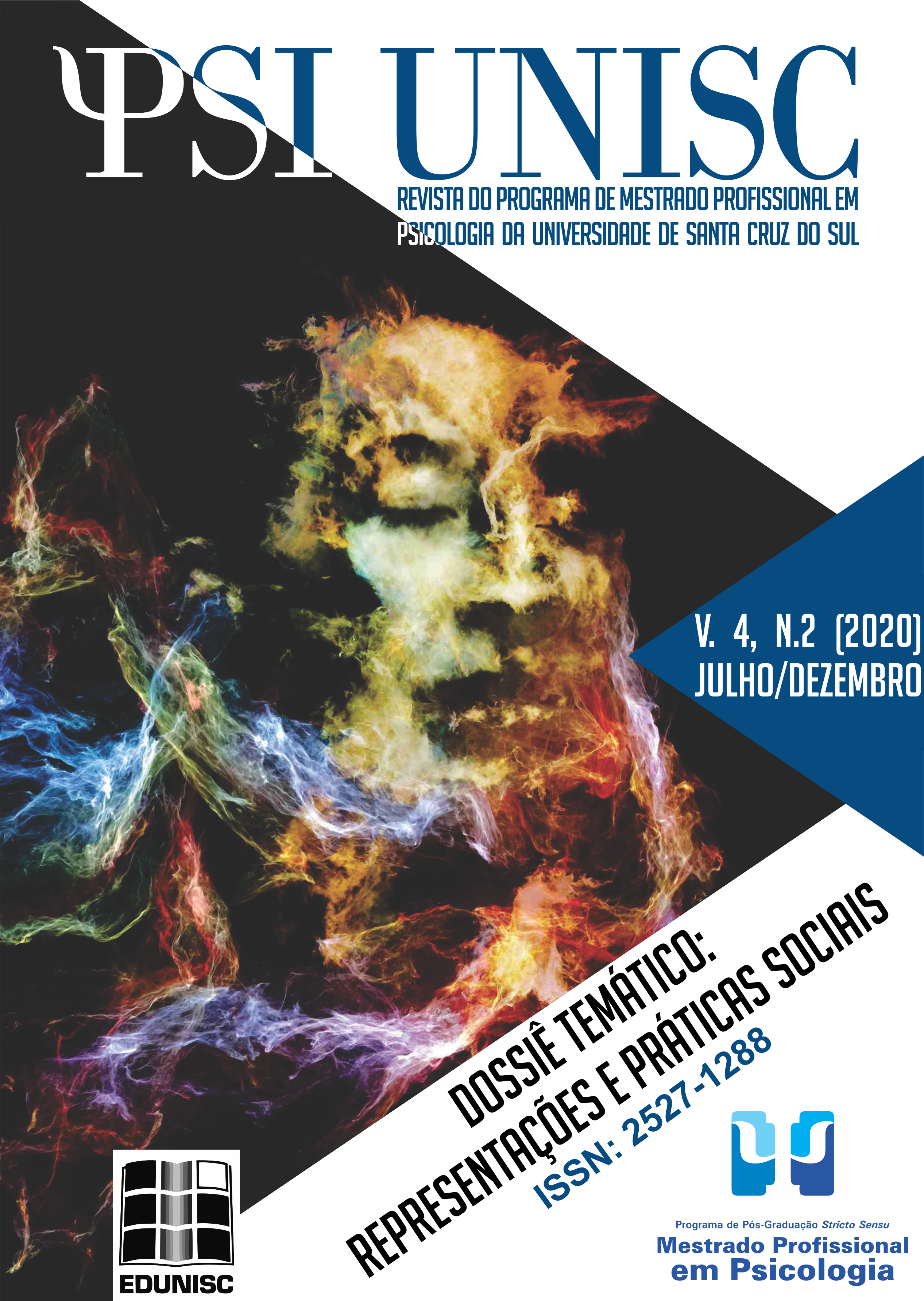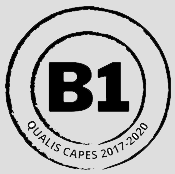Social Representations about the Work of the Second Teacher in Inclusive Education
DOI:
https://doi.org/10.17058/psiunisc.v4i2.15048Keywords:
Social representantions, Second teacher, School inclusion.Abstract
This article presents a research report that aimed to identify the elements present in the formation of social representations, by teachers who were teachers of early years, about the work of the second teacher, from the perspective of Inclusive Education. The education of students with disabilities in regular education has challenged the educational systems, giving way to a new professional in the classroom, the second teacher. The Social Representations Theory was used as a theoretical-methodological framework, which constituted an important tool to identify and to analyze the objectivation and the anchorage processes present in social representations. Fifteen teachers were interviewed. A lexical analysis of descending hierarchical classification was performed on data analysis, allowing to establish relationships and considerations about the perceptions and meanings attributed to the work of the second teacher by the participants, revealing the anchorages and objectivations that are in the formation and support of their representations. Considering that the role of the second teacher is a recent practice, we emphasize that the images about this teacher are not fully defined. The teachers' imaginary is permeated by anchorages that attribute to the second teacher conditions of control, surveillance, assistance and care for students with disabilities.Downloads
References
Amaral, L. A. (1995). Conhecendo a deficiência: em companhia de Hércules. São Paulo, SP: Robe Editorial.
Beyer, H. O. (2006). Inclusão e avaliação na escola: de alunos com necessidades educacionais especiais. Porto Alegre, RS: Mediação.
Brasil, Ministério da Educação. Secretaria de Educação Especial. (2010). Marcos Político-Legais da Educação Especial na Perspectiva da Educação Inclusiva. Brasília: Secretaria de Educação Especial.
Camargo, B. V., & Justo, A. M. (2013). Tutorial para uso do software de análise textual IRAMUTEQ. Laboratório de Psicologia Social da Comunicação e Cognição –LACCOS. Universidade Federal de Santa Catarina, Brasil. Recuperado de: http://www.iramuteq.org/documentation/fichiers/tutoriel-en-portugais.
Cunha, A. E. (2015). Representações sociais de professores acerca da inclusão escolar: elementos para uma discussão das práticas de ensino (Tese de Doutorado). Universidade Estácio de Sá, Rio de Janeiro.
Denari, F. E. (2013). Diversidade, deficiência, autonomia escolar: de volta ao começo? In: S. E. S. de O. Martins, C. R. M. Giroto, & C. B. G. Souza (Org.), Diferentes Olhares sobre a Inclusão (pp. 13-22). São Paulo, SP: Cultura Acadêmica; Marília: Oficina Universitária.
Ferreira, J. R. (1995). A Exclusão da Diferença. Piracicaba: UNIMEP.
Jesus, D. M. de, & Effgen, A. P. S. (2012). Formação docente e práticas pedagógicas: conexões, possibilidades e tensões. In T. G. Miranda, & T. A. G. Filho (org.), O professor e a Educação Inclusiva: formação, práticas e lugares (pp. 17-24). Salvador, BA: EDUFBA.
Lei n. 17.143, de 15 de maio de 2017. Dispõe sobre a presença do Segundo Professor de Turma nas salas de aula das escolas de educação básica que integram o sistema estadual de educação de Santa Catarina. Recuperado de http://leis.alesc.sc.gov.br/html/2017/17143_2017_lei.html.
Mantoan, M. T.E. (2002). A Educação Especial no Brasil: da exclusão à Inclusão Escolar. In LEPED, Universidade Estadual de Campinas. Recuperado de: http://www.lite.fe.unicamp.br/cursos/nt/ta1.3.htm
Mantoan, M.T. E. (2010). Atendimento educacional especializado: políticas públicas e gestão nos municípios. São Paulo, SP: Moderna.
Moscovici, S. (2003). Representações sociais: investigações em psicologia social. Petrópolis, RJ:Vozes.
Nova, T.de B. B., & Machado, L. B. (2014). O processo de objetivação nas representações sociais de escola para crianças. Série-Estudos - Periódico do Programa de Pós-Graduação em Educação da UCDB, 38, 93-106. Recuperado de https://www.serie-estudos.ucdb.br/serie-estudos/article/view/746
Oliveira, A. A. S., Braun, P., & Lara, P. T. (2013). Atendimento Educacional Especializado na área da Deficiência Intelectual: Questões sobre a prática docente. In S. G. C. Milanez, A. A. S. de Oliveira, & A. R. N. Misquiatti (Orgs.), Atendimento Educacional Especializado para alunos com deficiência Intelectual e Transtornos Globais do Desenvolvimento (pp. 41-60). São Paulo, SP: Cultura Acadêmica; Marília, SP: Oficina Universitária.
Sassaki, R. K. (2005). Inclusão: o paradigma do século 21. Inclusão: Revista de Educação Especial, 1(1), 19-23.
Soares, N. G., Javornik, G. de A., & Loss, A. S. (2019). Ações e Práticas de Ensino Inclusivas: Desafios da formação docente. In C. I. Ziesmann; J. de F. Batista; S. Lepke (orgs.), Formação Humana, Práticas Pedagógicas e Educação Inclusiva. Campinas, SP: Pontes Editores.
Stainback, S., & Stainback, W. (1999). Inclusão: um guia para educadores (M. F. Lopes, Trad.). Porto Alegre, RS: Artmed.
Vala, J. (2006). Representações Sociais e Psicologia Social do Conhecimento Quotidiano. In J. Vala, & M. B. Monteiro, Psicologia Social (7ª Ed.). Lisboa: Fundação Calouste Gulbenkian.
Downloads
Published
How to Cite
Issue
Section
License
The submission of originals to this journal implies the transfer, by the authors, of the printed and digital publication rights. The copyrights for the published articles are those of the author, with periodical rights on the first publication. Authors may only use the same results in other publications clearly indicating this journal as the medium of the original publication. Because we are an open access journal, we allow free use of articles in educational and scientific applications provided the source is cited under the Creative Commons CC-BY license.




